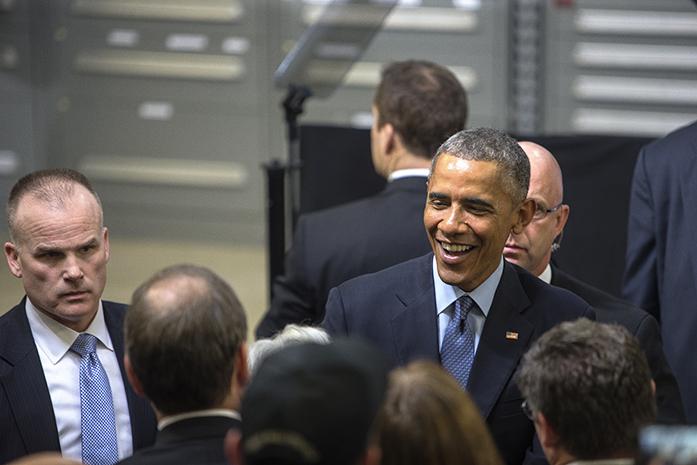Marcus Vincent Brown
[email protected]
With graduation right around the corner and the prospect of becoming an active participant in society at large, I’m sure the question of what comes next is on many people’s mind. It is always a pertinent question, but I’m sure one that becomes deafening as one’s time at an institution of higher learning comes to a close. At Howard University, President Obama gave a commencement speech that touched on a variety of issues that will soon become the responsibility of the university’s graduating class and ultimately black college students everywhere.
Notably, the president spoke on the progress of race relations and the need for compromise alongside the idea of taking pride in one’s own “beautiful, unique, and valid versions” of blackness. Obama spoke of a world that is better than it was yesterday while being sure to mention the importance of the history we use to gauge our forward progression into a fairer and just society. Most importantly, he spoke on the notion of democracy, going so far as to say “democracy requires compromise, even when you are 100 percent right,” but this is a point that I disagree with.
Democracy does not require compromise nor should it be the standard African Americans in this country strive for. Democracy’s only requirements are the will of the majority and the resulting power wielded to enforce it, and when speaking to the graduating class of a historically black university, it’s imperative to remember that this audience is a minority in a larger, more marginalized minority. Walking the line between social mobility and respectability politics, if there is one, should not mandate compromise. The danger is the comfort in a compromise, complacency, tacit endorsement, and reluctant opposition. There is a difference between open-minded negotiation and compromise, and while the two can be codependent at times, they should not be used interchangeably.
Compromise is a consolation prize, and especially so if one is 100 percent right, because if the discussion is not resting on the validity of the argument or stance, then what does it hinge on? If people are in a position that they must leverage their veracity against the falsehood of the oppressive institution, then compromise cannot be the first option. When people do not possess the power to make their falsehoods and skewed beliefs a reality, the truth of their intention becomes their greatest strength. Compromise can be used to gain power, not keep it, and as college-educated African Americans in this country, there will be a time when all you have is the truth and integrity of your beliefs. Once that has been compromised, any other foundation laid to down to establish a place in society with longevity will become precarious.
It would be naïve to disagree that this country has become more accommodating than it was in the past, and it would be disrespectful not to acknowledge the sacrifices and compromises that had to be made to ensure this. However, it is not entitlement to oppose compromise or recognize that Obama is in a unique position when it comes to the relationship between power and compromise, as he is the fullest embodiment of these two mutually exclusive positions.
It is not arrogance to use the position afforded by compromise to refuse its perpetuation. It is the best way to honor those who have come before us and guaranteed the right to walk away from an institution of higher learning diploma in hand and later return to give a commencement speech. It is the best way to honor those who have made compromises in the hope that one day you won’t have to.



